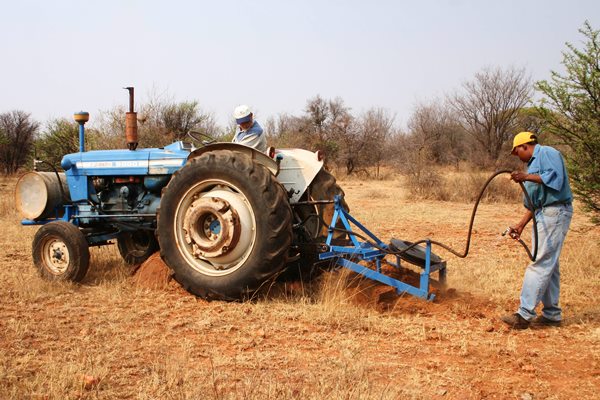Proactive machine maintenance works better than dealing with breakdowns. Farm machinery and equipment is expensive so it’s worth looking around for decent second hand implements. Many second-hand tractors and pickup vehicles (bakkies) have given their owners years of reliable service.
If you have a weakness for new machines and tools, which some farmers do have, nip it in the bud. It’s one way to break the bank and you won’t use half the stuff anyway.
The pickup is probably the most useful investment a small-scale farmer can make. It hauls supplies, takes produce to markets, ships animals on a trailer, and may even transport people. Take good care of your pickup, service it regularly, change the oil at the recommended mileage, check the water and keep an eye on the running temperature.
It’s an investment that keeps paying you back and properly taken care of, it will give you years of service.
PAY ATTENTION TO DETAILS
Properly maintained machines are a key element of a well-run farming operation. Breakdowns cost money and time and put the farmer into a crisis management zone which is not productive.
Whether you have one tractor and a few essential implements or a fleet of tractors and a shed full of equipment, the principle and purpose of regular maintenance is the same. It is to make sure that every piece of equipment you need for production is in good working order.
Short daily inspections, cleaning, lubricating, making small adjustments and noticing, and fixing, minor problems means they won’t become major problems.

The active participation of everyone on the farm will make the difference between a good maintenance programme and a mediocre one. Eyes on farm machinery and equipment means that problems are spotted as soon as they happen. Also worth a mention are the ears. Use yours as auditory scanners
A breakdown can end up costing the farmer 15 times more than the actual repair bill in lost production time.
GENERAL MAINTENANCE
Maintenance is often treated as a dirty and boring job, best left for later. But if farmers want reliable machinery, they must do regular maintenance. If you don’t have a natural aptitude for mechanical work, learn the skills. Nobody can expect a hard-working machine to stay reliable without reasonable care.

Tractors have to be serviced after a prescribed number of working hours, but this doesn’t take a rough operator or harsh terrain into account. Get rid of the rough operator and train staff to take care of small maintenance jobs, which leaves the (far more expensive) mechanic to focus on the technical work. Lack of capital or low income.
Every paper one reads on the mechanization of agriculture in Africa, and the competent maintenance of machinery, has lengthy sections on the associated problems: lack of technical knowledge by owner/operator; few trained mechanics and technicians; no spares or replacements; no after-sales service and no standard workshops.
While I am not denying that these are problems, I think there are many African farmers and ‘untrained’ mechanics with exceptional mechanical skill. A lack of the resources available in more developed countries has elicited novel, but workable, solutions to mechanical problems. The experience gained in this way is absolutely invaluable.
Zimbabweans have a particularly good reputation when it comes to mechanical ability.
THE OPTION OF HIRING AND HELPING
There are farmer groups who get together and share machinery which is a sensible way of cutting costs, but may cause some problems when it comes to who is responsible for the maintenance. The solution would be to have one dedicated driver rather than different operators for every piece of land.

Neighbours who have machinery or implements that you only need infrequently may be willing to help you out for a fee. This can be useful to both parties. You are not responsible for the maintenance and he spreads his costs.
Farm machinery is generally pretty robust but keep tools and hand implements in a workshop. They are essential to your operation and keeping them neatly stored makes access easier and theft more difficult.




